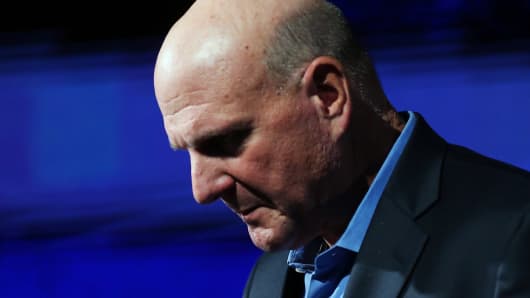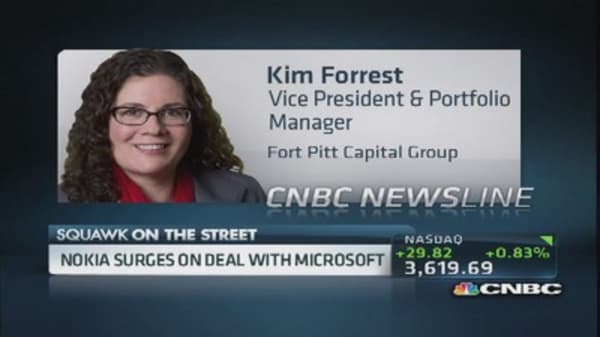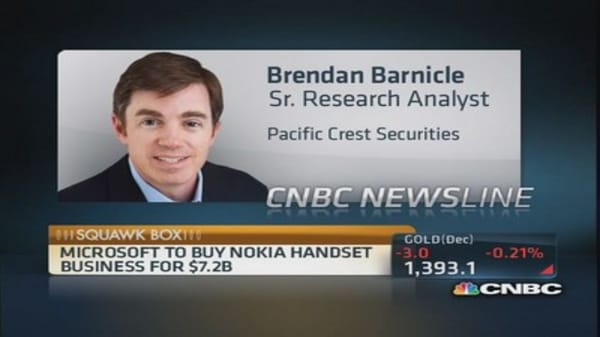While Microsoft has not named any CEO candidates, there has been plenty of speculation about who will be up next. With the Nokia announcement, a big contingent has the most likely candidate as Stephen Elop, a former Microsoft exec and current Nokia CEO—and what some are calling Microsoft's very own Manchurian Candidate.
(Read more: Microsoft's next CEO isn't who you think )
It's posited that Elop left his job as head of Microsoft's business division in 2010 to head up Nokia and prep the company for an eventual takeover. The theory then was that he would use that position to contract sweetheart deals for Microsoft.
While his reasons for joining Nokia remain hypothetical, there is reason to believe that his return to Microsoft will result in his replacing Ballmer, according to analysts and industry professionals.
Elop will be stepping down at Nokia when the transaction is considered for approval to avoid a conflict of interest, the company said. But the Microsoft board has said that it wants someone who understands its business, as well as devices, and Elop fits those qualifications.
"I think you have to assume he is in the lead if you think about what the board has talked about," Barnicle said. But just because Elop meets those requirements doesn't mean he is the best leader for the company, he added.
"I don't think he brings the real strategic change and innovation that you really need at Microsoft," Barnicle said. "And the hopes that folks had that there might be some big restructuring that might unlock a bunch of shareholder value—you've got to assume that's off the table with this move."
—By CNBC's Cadie Thompson. Follow her on Twitter @CadieThompson.






